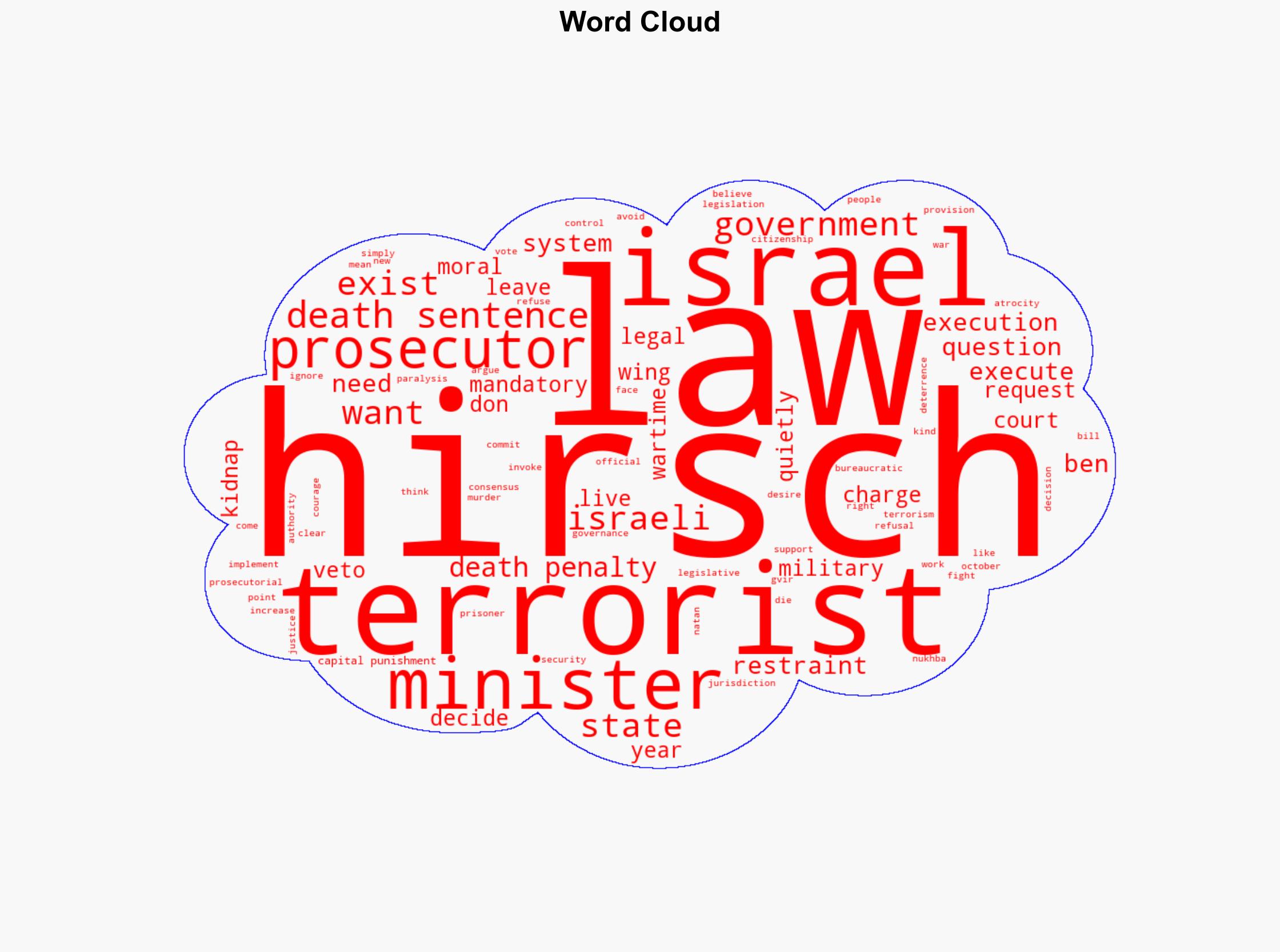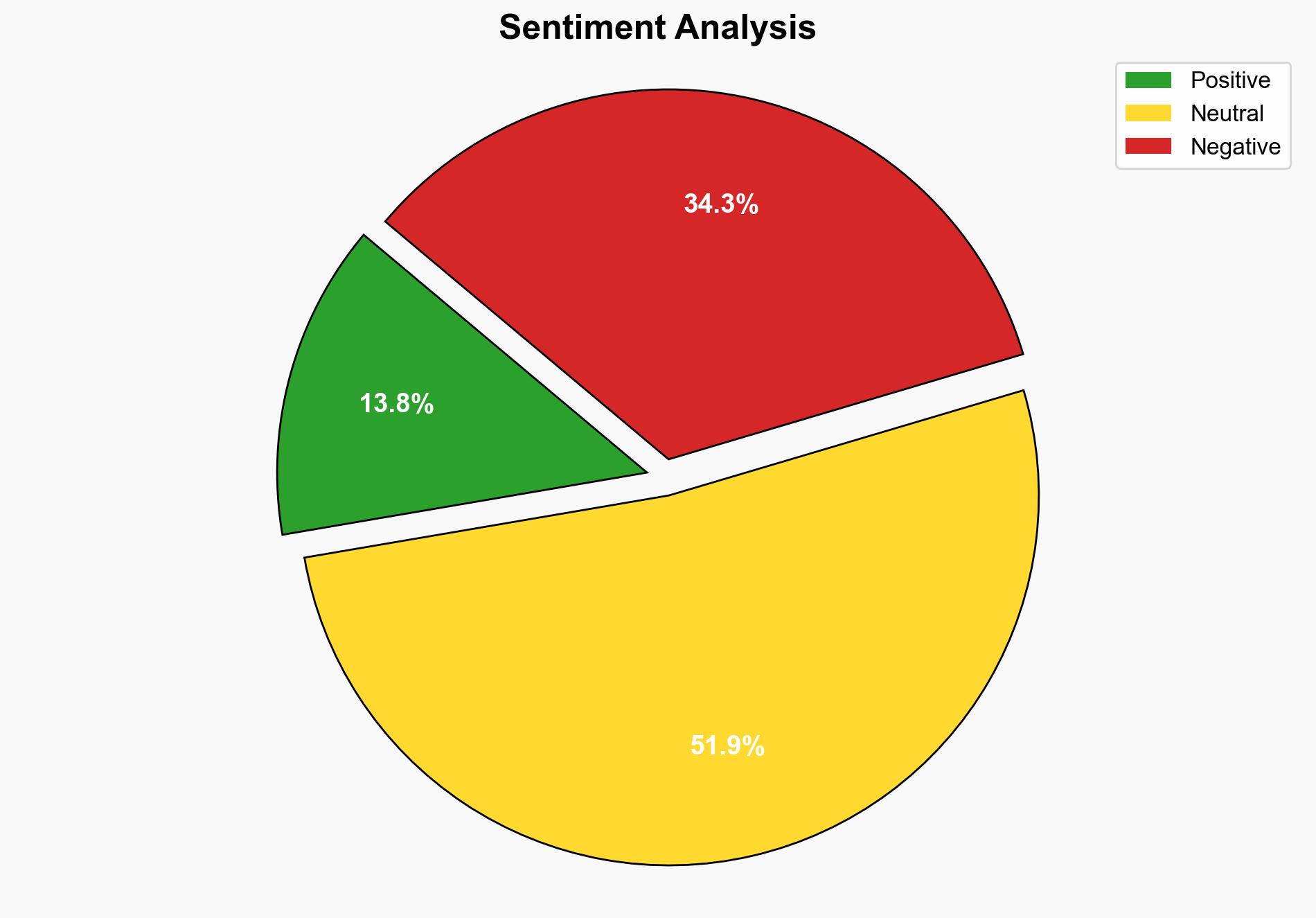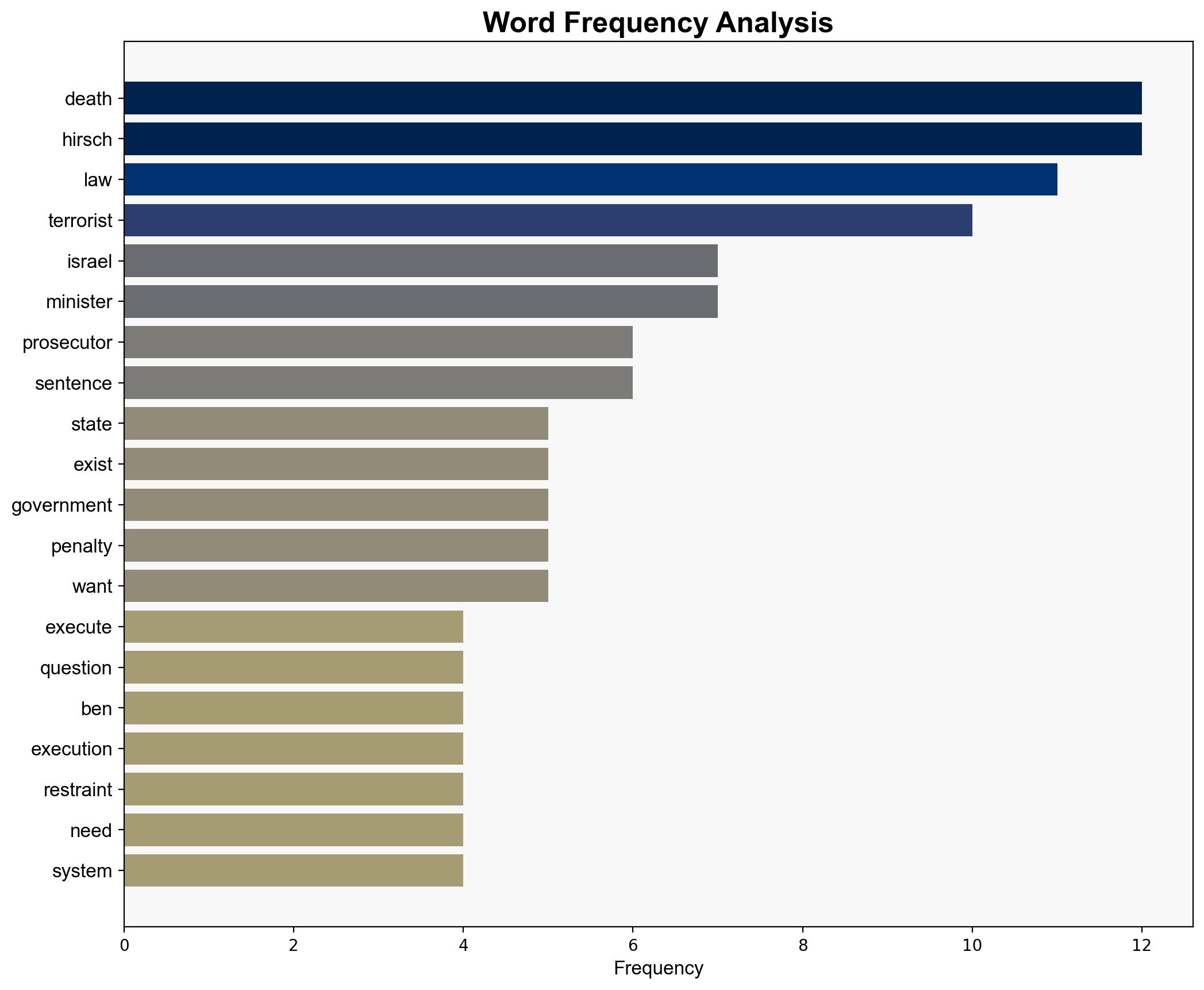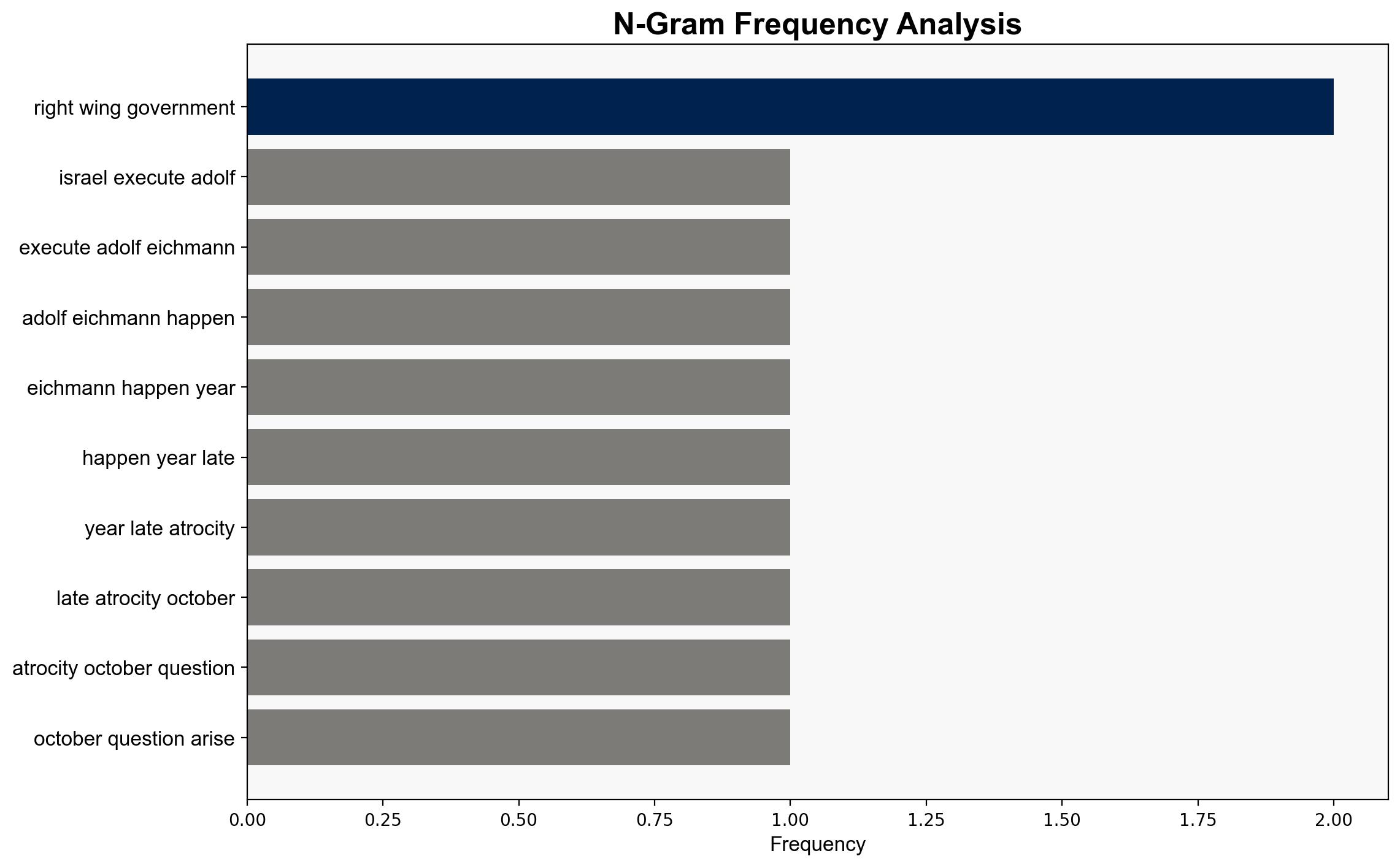The law that exists but never lives – Israelnationalnews.com
Published on: 2025-10-22
Intelligence Report: The law that exists but never lives – Israelnationalnews.com
1. BLUF (Bottom Line Up Front)
The strategic judgment is that the debate over capital punishment in Israel reflects deeper tensions between legal restraint and national security imperatives. The hypothesis that political and legal constraints prevent the implementation of the death penalty is better supported. Confidence level: Moderate. Recommended action: Establish a clear policy directive on capital punishment to align legal frameworks with national security needs.
2. Competing Hypotheses
1. **Hypothesis A**: The lack of capital punishment implementation is due to political and legal constraints, including prosecutorial vetoes and procedural barriers.
2. **Hypothesis B**: The absence of executions is a deliberate choice reflecting moral restraint and a strategic decision to avoid potential negative consequences, such as increased terrorist kidnappings.
Using the Analysis of Competing Hypotheses (ACH) 2.0, Hypothesis A is better supported by evidence of procedural barriers and prosecutorial discretion limiting the application of existing laws. Hypothesis B, while plausible, lacks concrete evidence of strategic deliberation leading to restraint.
3. Key Assumptions and Red Flags
– **Assumptions**: It is assumed that legal and political systems are the primary barriers to capital punishment. There is an assumption that deterrence is a primary goal of capital punishment.
– **Red Flags**: Potential bias in sources advocating for or against capital punishment. Lack of direct evidence linking restraint to strategic deterrence considerations.
– **Blind Spots**: The impact of international opinion and human rights considerations on Israel’s legal decisions is not fully explored.
4. Implications and Strategic Risks
– **Patterns**: Continued legal and political debate over capital punishment may lead to policy stagnation, affecting national security strategies.
– **Cascading Threats**: Failure to address legal ambiguities could embolden terrorist activities, exploiting perceived weaknesses in deterrence.
– **Potential Escalation**: Implementing capital punishment could provoke international backlash and increase domestic political tensions.
5. Recommendations and Outlook
- Conduct a comprehensive review of legal frameworks to align them with national security objectives.
- Engage in public and international dialogue to address human rights concerns and build consensus.
- Scenario Projections:
- **Best Case**: Clear policy leads to enhanced deterrence and reduced terrorist activities.
- **Worst Case**: Implementation of capital punishment triggers international condemnation and domestic unrest.
- **Most Likely**: Continued debate without significant policy change, maintaining the status quo.
6. Key Individuals and Entities
– Itamar Ben Gvir
– Smadar Ben Natan
– Maurice Hirsch
– Tal Hartuv
7. Thematic Tags
national security threats, counter-terrorism, legal frameworks, political debate




